Lion King Is The Future
And the future is boring
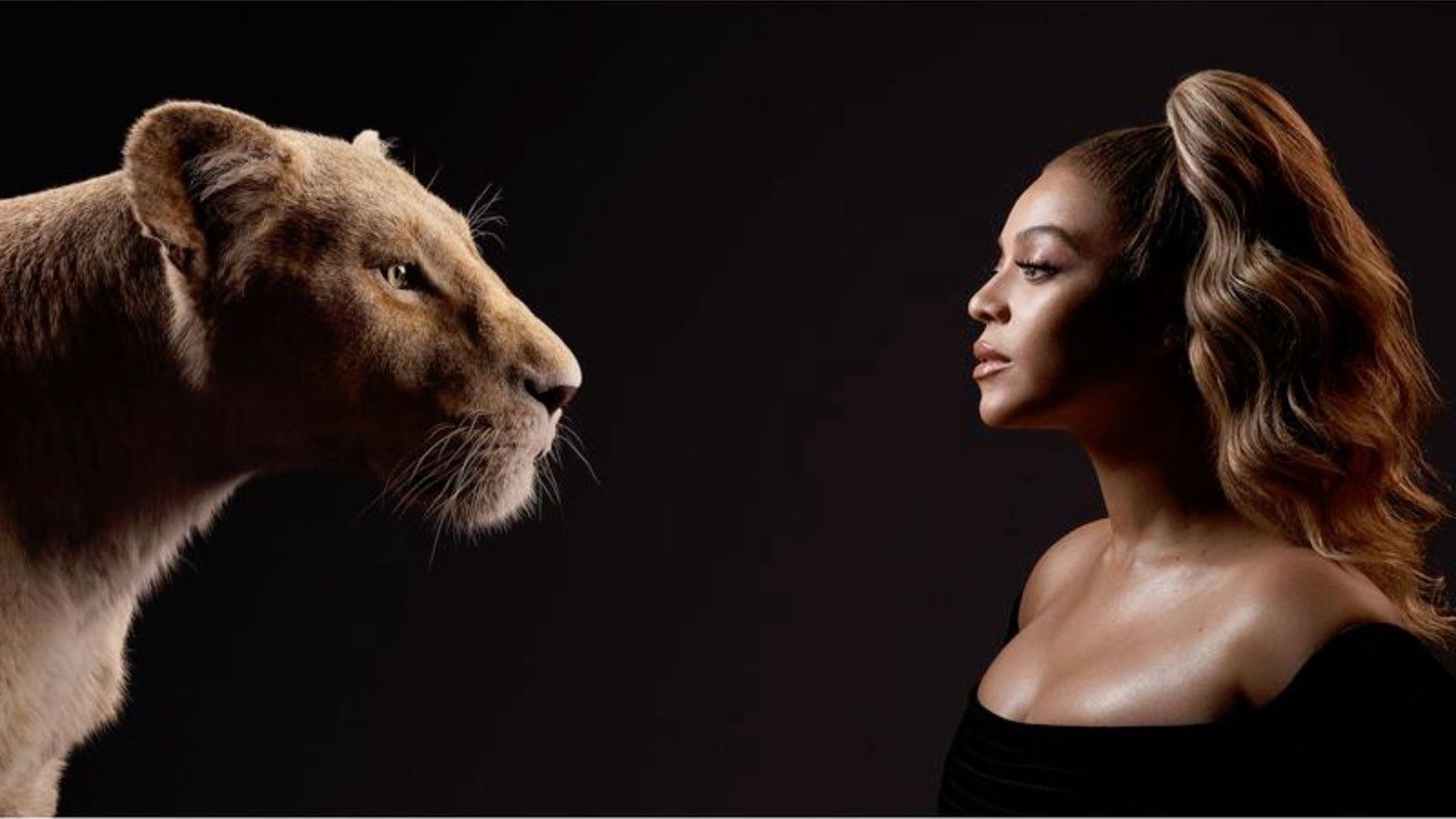
The new Lion King is so deeply animated that they just gave up and called it ‘live action’. In a very strange way, I guess it is. To understand, just look at how Jon Favreau and his crew filmed it.
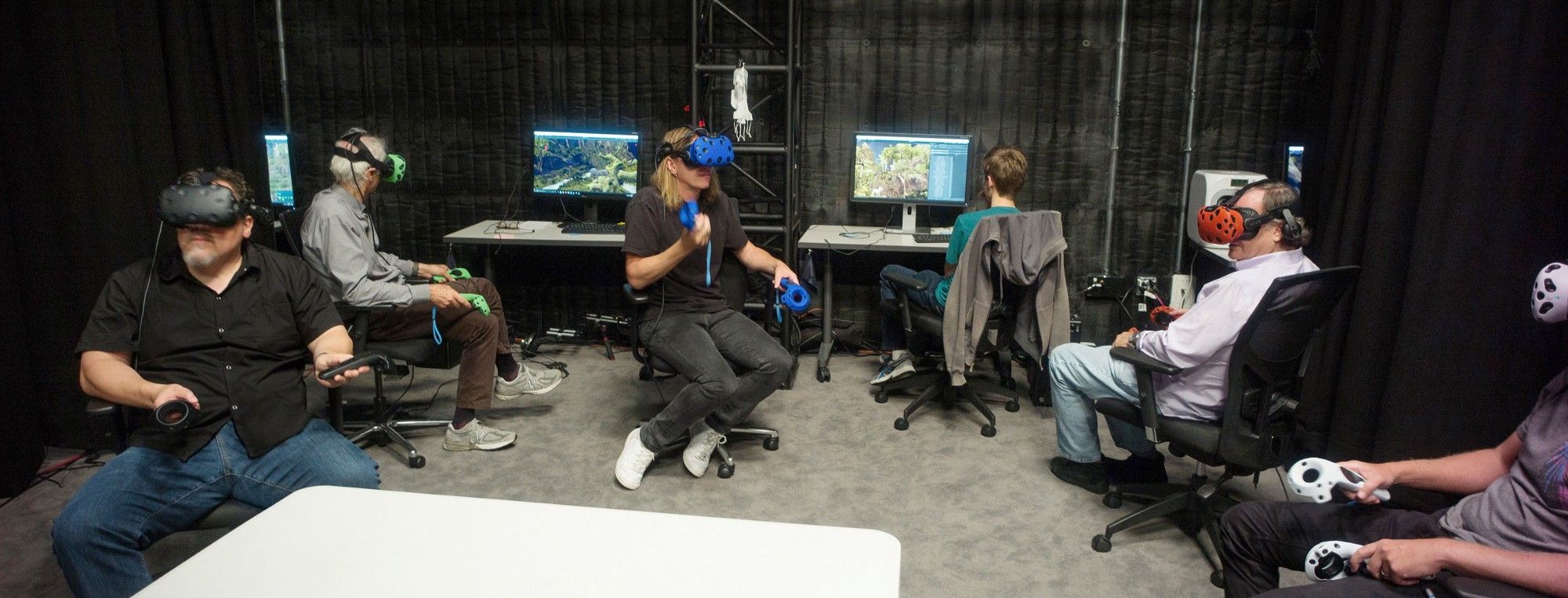
Instead of going to Africa, his crew went to a virtual world to shoot ‘real’ footage. They’re sitting in a room on office chairs, using VR headsets. They have fake cameras, dollies and lights that they move around, setting up and filming shots in a virtual world. Then we watch the scenes in 2D. It’s not a VR film but it is filmed in VR.
Unfortunately the new Lion King is also tremendously boring.
The original was a world where animals had lips and colors and physics could change for a musical number. In the new Lion King the animals look completely real, which makes you realize how fucking absurd talking animals are. In some walking scenes you’re honestly like ‘where are those voices coming from?’ and ‘why?’
This remake is often a shot-for-shot remake of the original, except done with photo-realistic animals. I don’t think anyone asked for this, but I guess it had to be done. Disney is just ringing their intellectual property cash register, but the technology itself is the future.
Intellectual Property
The great game in corporate film is intellectual property. That’s what companies like Disney do. They copyright intellectual property and then make that into real property that they can sell — movies, t-shirts, roller coasters.
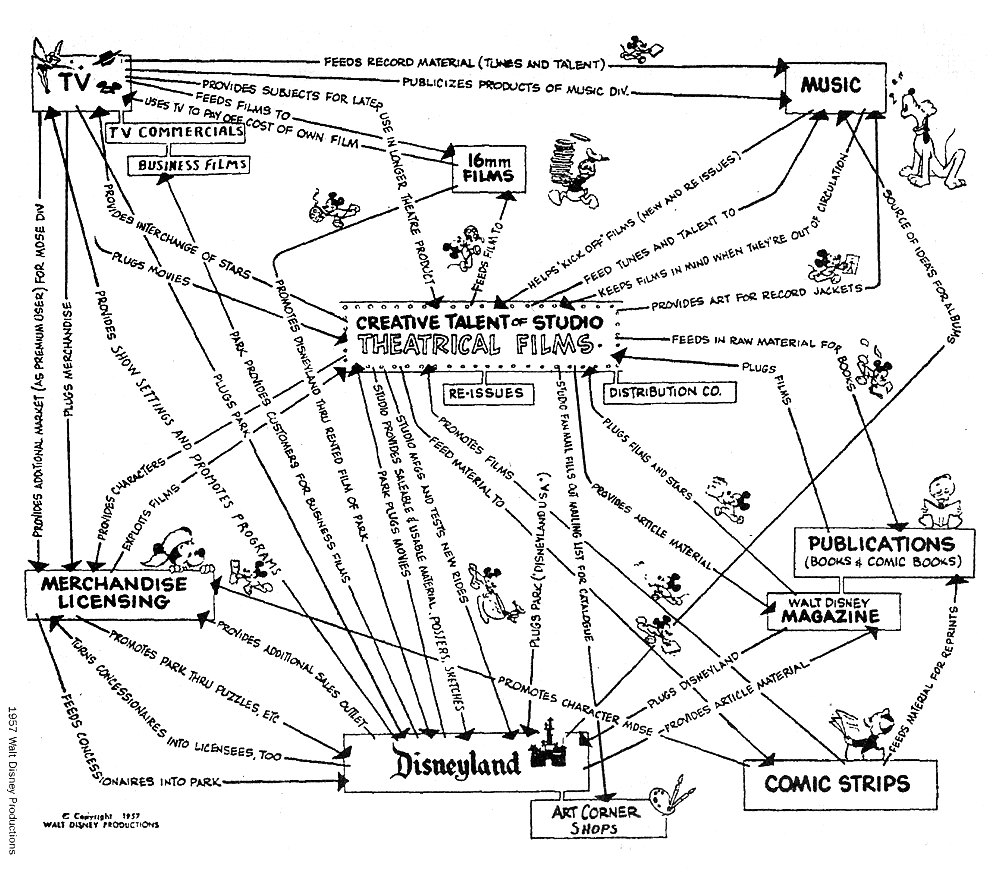
This fascinating document is Walt Disney’s corporate strategy sketch from 1957. It basically lays out the IP monetization machine that Disney has become. Creative talent creates films that sell soundtracks that spin-off TV shows that drive people to a theme park that sells merchandise. Lion King is a part of that strategy.
In this case the magic of the remake is not in the story, which is really a shadow of the original. It’s the fact that they made intellectual property — an intangible asset — real.
What’s interesting about Lion King is not the virtual sets, or the virtual characters, but the fact that we’re calling it live-action. Disney has made their intellectual property real in the only place reality matters — our minds. Critics complain about this film, but on the whole audiences have accepted it as ‘real’. The story is boring, but that is a coup.
Before this film Disney owned some IP called Lion King, but leveraging it involved an army of human beings. Now they own some real estate called Pride Rock. The can just pay a small camera crew to go in there and shoot. It’s like the old studio days where they owned giant backlots full of sets. It’s in a computer somewhere, but who cares. It’s real to us. They can film TV shows there, they can offer VR tours, they can create games. It’s a capital asset, not a bunch of drawings that need to be redone by humans if Pumba farts in another direction. They have made intellectual property real.
But the next step is still to come.
Actors As Digital Assets
The holy grail for entertainment corporations is weaning themselves of their dependence on expensive, unreliable, and frequently degenerate actors. If you could create a virtual Captain America or Luke Skywalker those go from being mortal actors to capital assets that merely depreciate.
Studios are already starting to do it for dead people. The best example is probably Paul Walker in Furious 7.
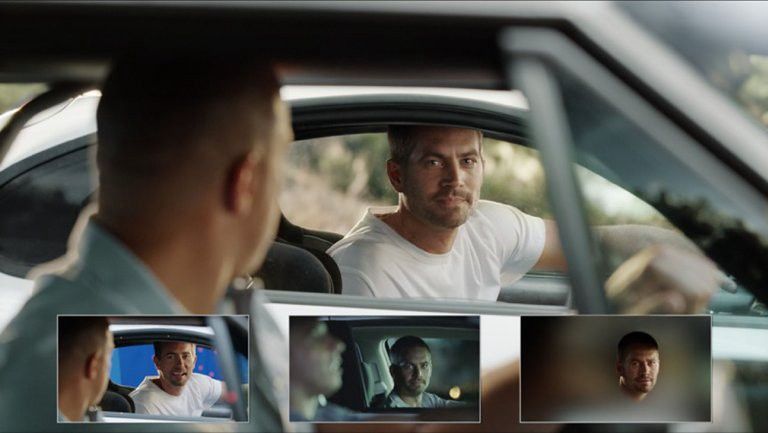
People usually point out this scene, which actually feels a bit fake, but as the Corridor Crew points out, there are mundane scenes in that film where you don’t realize that the character is fake at all. The virtual has crossed the valley, at least for those instants. Specifically the ones you don’t notice.
As Lion King shows, however, you still need a ghost in the shell to make a whole film. There has to be a voice, or motion capture — some real connection with a real human to animate the animation. The intangible something else of a great or known actor is still vitally important to film.
And they haven’t gotten there yet. The voice acting is necessary for Lion King, even though it still doesn’t really bring it to life. And it may be for a while. But eventually machine learning will capture the quirks of an actor’s voice and speech and you’ll be able to just feed it a script.
In the future ‘Beyonce’ will be a virtual asset controlled by a corporation. In 2100 people will be able to attend a convincing Beyonce concert or see her in a Lion Queen film with residuals going to her daughter Blue’s children. The virtual goose will continue laying golden eggs, long after the real goose has died.
There will also be completely virtual assets. Virtual models and entertainers are already popular and these can be created (and monetized) with no human reference (or heirs) at all.
Story Telling Is Eternal
And yet, none of these story-telling tools can beat story-telling, as Tyrion somewhat ironically pointed out in the last season of Game Of Thrones. Be it a voice around a fire or a bunch of hand-drawn pictures flicked really fast, stories are what capture our interest, not story-telling tools. The new Lion King is a technical marvel, but also boring.
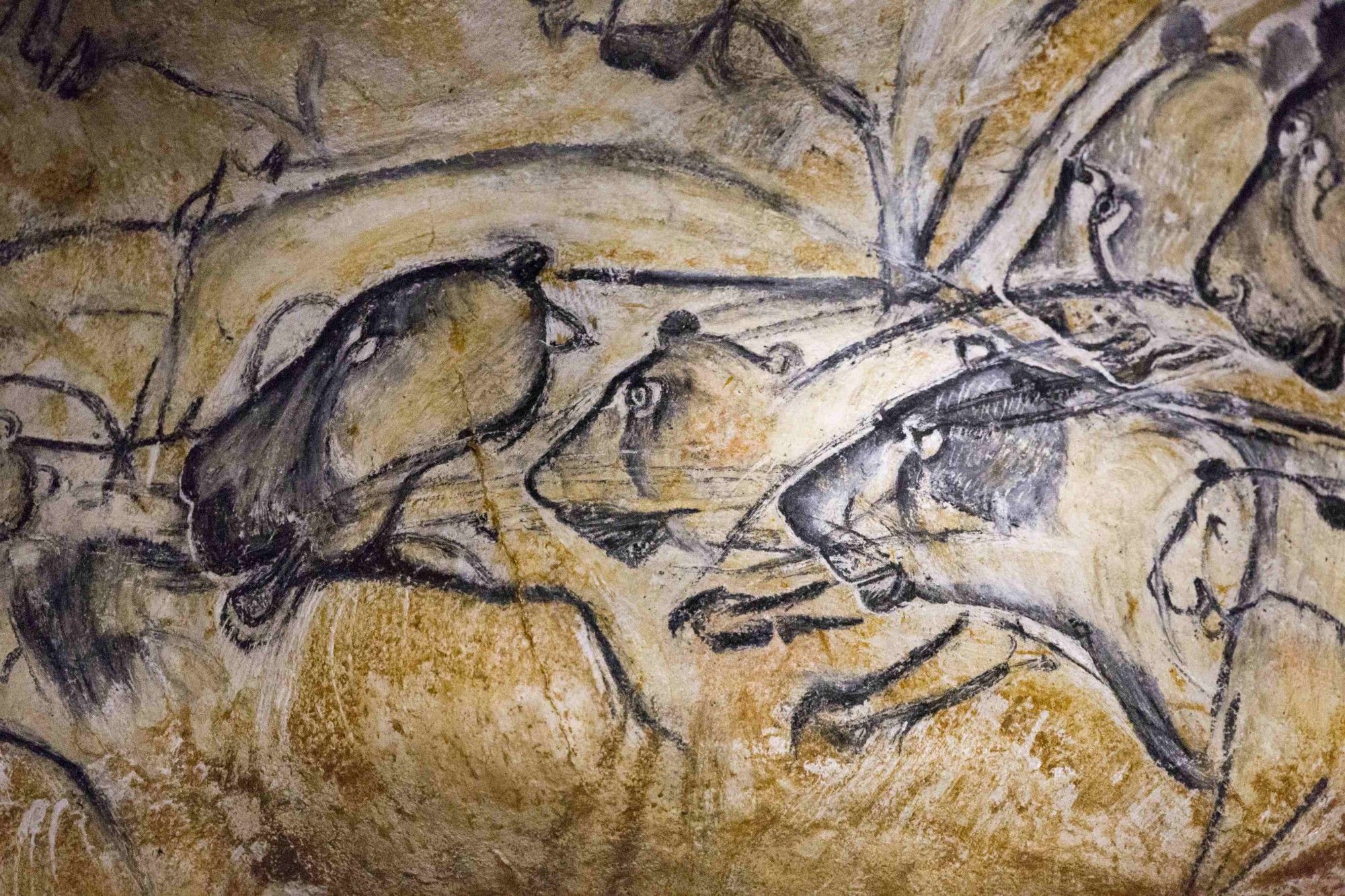
Corporations buy and commodify creativity, but there is still that spark that can take imperfect technology and make perfect stories out of it. And that’s something Disney and other corporations still haven’t captured. They’re still mostly borrowing it from the past.
But they’ll get there. Or someone will. These tools will get better and better, and the stories will come. These VR people and places will become almost physical manifestions of the imagination, incarnations of intellectual property. They should also hopefully become more democratized as they get cheaper, enabling more and more independents and random kids to create their own films, blocking and shooting in VR. Imagine thousand of kids shooting their own Lion King fan-fics, using a Disney’s ‘app’, or whatever they call our VR butt implants in the future. That’s actually the most interesting future of all. One where the monstrous commodification of intellectual property is connected to the limitless creativity of ‘random kid’.
Virtual worlds, virtual characters, virtual people — owned by corporations and trotted out to an appreciate public that calls them ‘live-action’. Eventually stories created by the public themselves. The future is almost here.
Now to just make it less boring.
Further Reading
The VR future of Cinema — Wired
The Death Of All Actors — Medium
Why Lion King should be Lion Queen — National Geographic